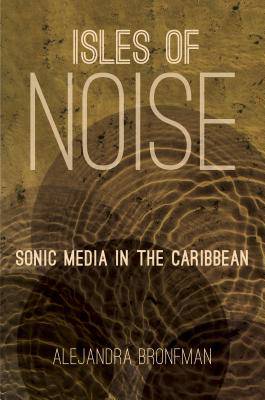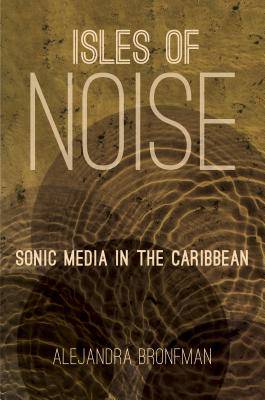
Door een staking bij bpost kan je online bestelling op dit moment iets langer onderweg zijn dan voorzien. Dringend iets nodig? Onze winkels ontvangen jou met open armen!
- Afhalen na 1 uur in een winkel met voorraad
- Gratis thuislevering in België vanaf € 30
- Ruim aanbod met 7 miljoen producten
Door een staking bij bpost kan je online bestelling op dit moment iets langer onderweg zijn dan voorzien. Dringend iets nodig? Onze winkels ontvangen jou met open armen!
- Afhalen na 1 uur in een winkel met voorraad
- Gratis thuislevering in België vanaf € 30
- Ruim aanbod met 7 miljoen producten
Zoeken
€ 129,95
+ 259 punten
Uitvoering
Omschrijving
In this media history of the Caribbean, Alejandra Bronfman traces how technology, culture, and politics developed in a region that was "wired" earlier and more widely than many other parts of the Americas. Haiti, Cuba, and Jamaica acquired radio and broadcasting in the early stages of the global expansion of telecommunications technologies. Imperial histories helped forge these material connections through which the United States, Great Britain, and the islands created a virtual laboratory for experiments in audiopolitics and listening practices.
As radio became an established medium worldwide, it burgeoned in the Caribbean because the region was a hub for intense foreign and domestic commercial and military activities. Attending to everyday life, infrastructure, and sounded histories during the waxing of an American empire and the waning of British influence in the Caribbean, Bronfman does not allow the notion of empire to stand solely for domination. By the time of the Cold War, broadcasting had become a ubiquitous phenomenon that rendered sound and voice central to political mobilization in the Caribbean nations throwing off what remained of their imperial tethers.
As radio became an established medium worldwide, it burgeoned in the Caribbean because the region was a hub for intense foreign and domestic commercial and military activities. Attending to everyday life, infrastructure, and sounded histories during the waxing of an American empire and the waning of British influence in the Caribbean, Bronfman does not allow the notion of empire to stand solely for domination. By the time of the Cold War, broadcasting had become a ubiquitous phenomenon that rendered sound and voice central to political mobilization in the Caribbean nations throwing off what remained of their imperial tethers.
Specificaties
Betrokkenen
- Auteur(s):
- Uitgeverij:
Inhoud
- Aantal bladzijden:
- 236
- Taal:
- Engels
Eigenschappen
- Productcode (EAN):
- 9781469630335
- Verschijningsdatum:
- 3/10/2016
- Uitvoering:
- Hardcover
- Formaat:
- Genaaid
- Afmetingen:
- 156 mm x 234 mm
- Gewicht:
- 539 g

Alleen bij Standaard Boekhandel
+ 259 punten op je klantenkaart van Standaard Boekhandel
Beoordelingen
We publiceren alleen reviews die voldoen aan de voorwaarden voor reviews. Bekijk onze voorwaarden voor reviews.











